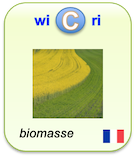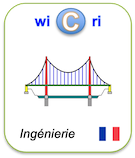TDAB-induced DNA plasmid condensation on the surface of a reconstructed boron doped silicon substrate
Identifieur interne : 000723 ( PascalFrancis/Curation ); précédent : 000722; suivant : 000724TDAB-induced DNA plasmid condensation on the surface of a reconstructed boron doped silicon substrate
Auteurs : Antoine Mougin [France, Canada] ; Valéry G. Babak [Russie] ; Frank Palmino [France] ; Eric Beche [France] ; Francis Baros [France] ; Darel J. Hunting [Canada] ; Léon Sanche [Canada] ; Michel Fromm [France]Source :
- Surface science [ 0039-6028 ] ; 2008.
Descripteurs français
- Pascal (Inist)
- Wicri :
- topic : Condensation.
English descriptors
- KwdEn :
Abstract
Our study aims at a better control and understanding of the transfer of a complex [DNA supercoiled plasmid - dodecyltrimethylammonium surfactant] layer from a liquid-vapour water interface onto a silicon surface without any additional cross-linker. The production of the complexed layer and its transfer from the aqueous subphase to the substrate is achieved with a Langmuir-Blodgett device. The substrate consists of a reconstructed boron doped silicon substrate with a nanometer-scale roughness. Using X-ray photoelectron spectroscopy and atomic force microscopy measurements, it is shown that the DNA complexes are stretched in a disorderly manner throughout a 2-4nm high net-like structure. This architecture is composed of tilted cationic surfactant molecules bound electrostatically to DNA, which exhibits a characteristic network arrangement with a measured average fiber diameter of about 45 ± 15 nm covering the entire surface. The mechanism of transfer of this layer onto the planar surface of the semi-conductor and the parameters of the process are analysed and illustrated by atomic force microscopy snapshots. The molecular layer exhibits the typical characteristics of a spinodal decomposition pattern or dewetting features. Plasmid molecules appear like long flattened fibers covering the surface, forming holes of various shapes and areas. The cluster-cluster aggregation of the complex structure gets very much denser on the substrate edge. The supercoiled DNA plasmids undergo conformational changes and a high degree of condensation and aggregation is observed. Perspectives and potential applications are considered.
| pA |
|
|---|
Links toward previous steps (curation, corpus...)
- to stream PascalFrancis, to step Corpus: Pour aller vers cette notice dans l'étape Curation :000388
Links to Exploration step
Pascal:08-0128450Le document en format XML
<record><TEI><teiHeader><fileDesc><titleStmt><title xml:lang="en" level="a">TDAB-induced DNA plasmid condensation on the surface of a reconstructed boron doped silicon substrate</title><author><name sortKey="Mougin, Antoine" sort="Mougin, Antoine" uniqKey="Mougin A" first="Antoine" last="Mougin">Antoine Mougin</name><affiliation wicri:level="1"><inist:fA14 i1="01"><s1>LMN-AC, UMR CEA E4, Université de Franche-Comté, 16 route de Gray</s1><s2>25030 Besancon</s2><s3>FRA</s3><sZ>1 aut.</sZ><sZ>8 aut.</sZ></inist:fA14><country>France</country></affiliation><affiliation wicri:level="1"><inist:fA14 i1="02"><s1>Centre for Research in Radiooncology, Faculté de Médecine, Université de Sherbrooke</s1><s2>Sherbrooke, QC, J1H 5N4</s2><s3>CAN</s3><sZ>1 aut.</sZ><sZ>6 aut.</sZ><sZ>7 aut.</sZ></inist:fA14><country>Canada</country></affiliation></author><author><name sortKey="Babak, Valery G" sort="Babak, Valery G" uniqKey="Babak V" first="Valéry G." last="Babak">Valéry G. Babak</name><affiliation wicri:level="1"><inist:fA14 i1="03"><s1>INEOS RAS, 28 Vavilova</s1><s2>Moscow 117813</s2><s3>RUS</s3><sZ>2 aut.</sZ></inist:fA14><country>Russie</country></affiliation></author><author><name sortKey="Palmino, Frank" sort="Palmino, Frank" uniqKey="Palmino F" first="Frank" last="Palmino">Frank Palmino</name><affiliation wicri:level="1"><inist:fA14 i1="04"><s1>FEMTO-ST/Dpt LPMO, UMR CNRS 6174, BP 71427</s1><s2>25211 Montbéliard</s2><s3>FRA</s3><sZ>3 aut.</sZ></inist:fA14><country>France</country></affiliation></author><author><name sortKey="Beche, Eric" sort="Beche, Eric" uniqKey="Beche E" first="Eric" last="Beche">Eric Beche</name><affiliation wicri:level="1"><inist:fA14 i1="05"><s1>PROMES, UMR CNRS 8521, BP 5 Odeillo</s1><s2>66125 Font Romeu</s2><s3>FRA</s3><sZ>4 aut.</sZ></inist:fA14><country>France</country></affiliation></author><author><name sortKey="Baros, Francis" sort="Baros, Francis" uniqKey="Baros F" first="Francis" last="Baros">Francis Baros</name><affiliation wicri:level="1"><inist:fA14 i1="06"><s1>UMR CNRS 7630/INPL, ENSIC-DCPR, 1 rue Grandville</s1><s2>54001 Nancy</s2><s3>FRA</s3><sZ>5 aut.</sZ></inist:fA14><country>France</country></affiliation></author><author><name sortKey="Hunting, Darel J" sort="Hunting, Darel J" uniqKey="Hunting D" first="Darel J." last="Hunting">Darel J. Hunting</name><affiliation wicri:level="1"><inist:fA14 i1="02"><s1>Centre for Research in Radiooncology, Faculté de Médecine, Université de Sherbrooke</s1><s2>Sherbrooke, QC, J1H 5N4</s2><s3>CAN</s3><sZ>1 aut.</sZ><sZ>6 aut.</sZ><sZ>7 aut.</sZ></inist:fA14><country>Canada</country></affiliation></author><author><name sortKey="Sanche, Leon" sort="Sanche, Leon" uniqKey="Sanche L" first="Léon" last="Sanche">Léon Sanche</name><affiliation wicri:level="1"><inist:fA14 i1="02"><s1>Centre for Research in Radiooncology, Faculté de Médecine, Université de Sherbrooke</s1><s2>Sherbrooke, QC, J1H 5N4</s2><s3>CAN</s3><sZ>1 aut.</sZ><sZ>6 aut.</sZ><sZ>7 aut.</sZ></inist:fA14><country>Canada</country></affiliation></author><author><name sortKey="Fromm, Michel" sort="Fromm, Michel" uniqKey="Fromm M" first="Michel" last="Fromm">Michel Fromm</name><affiliation wicri:level="1"><inist:fA14 i1="01"><s1>LMN-AC, UMR CEA E4, Université de Franche-Comté, 16 route de Gray</s1><s2>25030 Besancon</s2><s3>FRA</s3><sZ>1 aut.</sZ><sZ>8 aut.</sZ></inist:fA14><country>France</country></affiliation></author></titleStmt><publicationStmt><idno type="wicri:source">INIST</idno><idno type="inist">08-0128450</idno><date when="2008">2008</date><idno type="stanalyst">PASCAL 08-0128450 INIST</idno><idno type="RBID">Pascal:08-0128450</idno><idno type="wicri:Area/PascalFrancis/Corpus">000388</idno><idno type="wicri:Area/PascalFrancis/Curation">000723</idno></publicationStmt><sourceDesc><biblStruct><analytic><title xml:lang="en" level="a">TDAB-induced DNA plasmid condensation on the surface of a reconstructed boron doped silicon substrate</title><author><name sortKey="Mougin, Antoine" sort="Mougin, Antoine" uniqKey="Mougin A" first="Antoine" last="Mougin">Antoine Mougin</name><affiliation wicri:level="1"><inist:fA14 i1="01"><s1>LMN-AC, UMR CEA E4, Université de Franche-Comté, 16 route de Gray</s1><s2>25030 Besancon</s2><s3>FRA</s3><sZ>1 aut.</sZ><sZ>8 aut.</sZ></inist:fA14><country>France</country></affiliation><affiliation wicri:level="1"><inist:fA14 i1="02"><s1>Centre for Research in Radiooncology, Faculté de Médecine, Université de Sherbrooke</s1><s2>Sherbrooke, QC, J1H 5N4</s2><s3>CAN</s3><sZ>1 aut.</sZ><sZ>6 aut.</sZ><sZ>7 aut.</sZ></inist:fA14><country>Canada</country></affiliation></author><author><name sortKey="Babak, Valery G" sort="Babak, Valery G" uniqKey="Babak V" first="Valéry G." last="Babak">Valéry G. Babak</name><affiliation wicri:level="1"><inist:fA14 i1="03"><s1>INEOS RAS, 28 Vavilova</s1><s2>Moscow 117813</s2><s3>RUS</s3><sZ>2 aut.</sZ></inist:fA14><country>Russie</country></affiliation></author><author><name sortKey="Palmino, Frank" sort="Palmino, Frank" uniqKey="Palmino F" first="Frank" last="Palmino">Frank Palmino</name><affiliation wicri:level="1"><inist:fA14 i1="04"><s1>FEMTO-ST/Dpt LPMO, UMR CNRS 6174, BP 71427</s1><s2>25211 Montbéliard</s2><s3>FRA</s3><sZ>3 aut.</sZ></inist:fA14><country>France</country></affiliation></author><author><name sortKey="Beche, Eric" sort="Beche, Eric" uniqKey="Beche E" first="Eric" last="Beche">Eric Beche</name><affiliation wicri:level="1"><inist:fA14 i1="05"><s1>PROMES, UMR CNRS 8521, BP 5 Odeillo</s1><s2>66125 Font Romeu</s2><s3>FRA</s3><sZ>4 aut.</sZ></inist:fA14><country>France</country></affiliation></author><author><name sortKey="Baros, Francis" sort="Baros, Francis" uniqKey="Baros F" first="Francis" last="Baros">Francis Baros</name><affiliation wicri:level="1"><inist:fA14 i1="06"><s1>UMR CNRS 7630/INPL, ENSIC-DCPR, 1 rue Grandville</s1><s2>54001 Nancy</s2><s3>FRA</s3><sZ>5 aut.</sZ></inist:fA14><country>France</country></affiliation></author><author><name sortKey="Hunting, Darel J" sort="Hunting, Darel J" uniqKey="Hunting D" first="Darel J." last="Hunting">Darel J. Hunting</name><affiliation wicri:level="1"><inist:fA14 i1="02"><s1>Centre for Research in Radiooncology, Faculté de Médecine, Université de Sherbrooke</s1><s2>Sherbrooke, QC, J1H 5N4</s2><s3>CAN</s3><sZ>1 aut.</sZ><sZ>6 aut.</sZ><sZ>7 aut.</sZ></inist:fA14><country>Canada</country></affiliation></author><author><name sortKey="Sanche, Leon" sort="Sanche, Leon" uniqKey="Sanche L" first="Léon" last="Sanche">Léon Sanche</name><affiliation wicri:level="1"><inist:fA14 i1="02"><s1>Centre for Research in Radiooncology, Faculté de Médecine, Université de Sherbrooke</s1><s2>Sherbrooke, QC, J1H 5N4</s2><s3>CAN</s3><sZ>1 aut.</sZ><sZ>6 aut.</sZ><sZ>7 aut.</sZ></inist:fA14><country>Canada</country></affiliation></author><author><name sortKey="Fromm, Michel" sort="Fromm, Michel" uniqKey="Fromm M" first="Michel" last="Fromm">Michel Fromm</name><affiliation wicri:level="1"><inist:fA14 i1="01"><s1>LMN-AC, UMR CEA E4, Université de Franche-Comté, 16 route de Gray</s1><s2>25030 Besancon</s2><s3>FRA</s3><sZ>1 aut.</sZ><sZ>8 aut.</sZ></inist:fA14><country>France</country></affiliation></author></analytic><series><title level="j" type="main">Surface science</title><title level="j" type="abbreviated">Surf. sci.</title><idno type="ISSN">0039-6028</idno><imprint><date when="2008">2008</date></imprint></series></biblStruct></sourceDesc><seriesStmt><title level="j" type="main">Surface science</title><title level="j" type="abbreviated">Surf. sci.</title><idno type="ISSN">0039-6028</idno></seriesStmt></fileDesc><profileDesc><textClass><keywords scheme="KwdEn" xml:lang="en"><term>Atomic force microscopy</term><term>Boron</term><term>Doped materials</term><term>Langmuir-Blodgett films</term><term>Silicon</term><term>Surfactants</term><term>Vapor condensation</term></keywords><keywords scheme="Pascal" xml:lang="fr"><term>Condensation</term><term>Bore</term><term>Matériau dopé</term><term>Silicium</term><term>Microscopie force atomique</term><term>Couche Langmuir Blodgett</term><term>Agent surface</term><term>B</term><term>Si</term></keywords><keywords scheme="Wicri" type="topic" xml:lang="fr"><term>Condensation</term></keywords></textClass></profileDesc></teiHeader><front><div type="abstract" xml:lang="en">Our study aims at a better control and understanding of the transfer of a complex [DNA supercoiled plasmid - dodecyltrimethylammonium surfactant] layer from a liquid-vapour water interface onto a silicon surface without any additional cross-linker. The production of the complexed layer and its transfer from the aqueous subphase to the substrate is achieved with a Langmuir-Blodgett device. The substrate consists of a reconstructed boron doped silicon substrate with a nanometer-scale roughness. Using X-ray photoelectron spectroscopy and atomic force microscopy measurements, it is shown that the DNA complexes are stretched in a disorderly manner throughout a 2-4nm high net-like structure. This architecture is composed of tilted cationic surfactant molecules bound electrostatically to DNA, which exhibits a characteristic network arrangement with a measured average fiber diameter of about 45 ± 15 nm covering the entire surface. The mechanism of transfer of this layer onto the planar surface of the semi-conductor and the parameters of the process are analysed and illustrated by atomic force microscopy snapshots. The molecular layer exhibits the typical characteristics of a spinodal decomposition pattern or dewetting features. Plasmid molecules appear like long flattened fibers covering the surface, forming holes of various shapes and areas. The cluster-cluster aggregation of the complex structure gets very much denser on the substrate edge. The supercoiled DNA plasmids undergo conformational changes and a high degree of condensation and aggregation is observed. Perspectives and potential applications are considered.</div></front></TEI><inist><standard h6="B"><pA><fA01 i1="01" i2="1"><s0>0039-6028</s0></fA01><fA02 i1="01"><s0>SUSCAS</s0></fA02><fA03 i2="1"><s0>Surf. sci.</s0></fA03><fA05><s2>602</s2></fA05><fA06><s2>1</s2></fA06><fA08 i1="01" i2="1" l="ENG"><s1>TDAB-induced DNA plasmid condensation on the surface of a reconstructed boron doped silicon substrate</s1></fA08><fA11 i1="01" i2="1"><s1>MOUGIN (Antoine)</s1></fA11><fA11 i1="02" i2="1"><s1>BABAK (Valéry G.)</s1></fA11><fA11 i1="03" i2="1"><s1>PALMINO (Frank)</s1></fA11><fA11 i1="04" i2="1"><s1>BECHE (Eric)</s1></fA11><fA11 i1="05" i2="1"><s1>BAROS (Francis)</s1></fA11><fA11 i1="06" i2="1"><s1>HUNTING (Darel J.)</s1></fA11><fA11 i1="07" i2="1"><s1>SANCHE (Léon)</s1></fA11><fA11 i1="08" i2="1"><s1>FROMM (Michel)</s1></fA11><fA14 i1="01"><s1>LMN-AC, UMR CEA E4, Université de Franche-Comté, 16 route de Gray</s1><s2>25030 Besancon</s2><s3>FRA</s3><sZ>1 aut.</sZ><sZ>8 aut.</sZ></fA14><fA14 i1="02"><s1>Centre for Research in Radiooncology, Faculté de Médecine, Université de Sherbrooke</s1><s2>Sherbrooke, QC, J1H 5N4</s2><s3>CAN</s3><sZ>1 aut.</sZ><sZ>6 aut.</sZ><sZ>7 aut.</sZ></fA14><fA14 i1="03"><s1>INEOS RAS, 28 Vavilova</s1><s2>Moscow 117813</s2><s3>RUS</s3><sZ>2 aut.</sZ></fA14><fA14 i1="04"><s1>FEMTO-ST/Dpt LPMO, UMR CNRS 6174, BP 71427</s1><s2>25211 Montbéliard</s2><s3>FRA</s3><sZ>3 aut.</sZ></fA14><fA14 i1="05"><s1>PROMES, UMR CNRS 8521, BP 5 Odeillo</s1><s2>66125 Font Romeu</s2><s3>FRA</s3><sZ>4 aut.</sZ></fA14><fA14 i1="06"><s1>UMR CNRS 7630/INPL, ENSIC-DCPR, 1 rue Grandville</s1><s2>54001 Nancy</s2><s3>FRA</s3><sZ>5 aut.</sZ></fA14><fA20><s1>142-150</s1></fA20><fA21><s1>2008</s1></fA21><fA23 i1="01"><s0>ENG</s0></fA23><fA43 i1="01"><s1>INIST</s1><s2>12426</s2><s5>354000162776350210</s5></fA43><fA44><s0>0000</s0><s1>© 2008 INIST-CNRS. All rights reserved.</s1></fA44><fA45><s0>41 ref.</s0></fA45><fA47 i1="01" i2="1"><s0>08-0128450</s0></fA47><fA60><s1>P</s1></fA60><fA61><s0>A</s0></fA61><fA64 i1="01" i2="1"><s0>Surface science</s0></fA64><fA66 i1="01"><s0>NLD</s0></fA66><fC01 i1="01" l="ENG"><s0>Our study aims at a better control and understanding of the transfer of a complex [DNA supercoiled plasmid - dodecyltrimethylammonium surfactant] layer from a liquid-vapour water interface onto a silicon surface without any additional cross-linker. The production of the complexed layer and its transfer from the aqueous subphase to the substrate is achieved with a Langmuir-Blodgett device. The substrate consists of a reconstructed boron doped silicon substrate with a nanometer-scale roughness. Using X-ray photoelectron spectroscopy and atomic force microscopy measurements, it is shown that the DNA complexes are stretched in a disorderly manner throughout a 2-4nm high net-like structure. This architecture is composed of tilted cationic surfactant molecules bound electrostatically to DNA, which exhibits a characteristic network arrangement with a measured average fiber diameter of about 45 ± 15 nm covering the entire surface. The mechanism of transfer of this layer onto the planar surface of the semi-conductor and the parameters of the process are analysed and illustrated by atomic force microscopy snapshots. The molecular layer exhibits the typical characteristics of a spinodal decomposition pattern or dewetting features. Plasmid molecules appear like long flattened fibers covering the surface, forming holes of various shapes and areas. The cluster-cluster aggregation of the complex structure gets very much denser on the substrate edge. The supercoiled DNA plasmids undergo conformational changes and a high degree of condensation and aggregation is observed. Perspectives and potential applications are considered.</s0></fC01><fC02 i1="01" i2="3"><s0>001B60</s0></fC02><fC02 i1="02" i2="3"><s0>001B70</s0></fC02><fC02 i1="03" i2="3"><s0>001B80</s0></fC02><fC03 i1="01" i2="3" l="FRE"><s0>Condensation</s0><s5>01</s5></fC03><fC03 i1="01" i2="3" l="ENG"><s0>Vapor condensation</s0><s5>01</s5></fC03><fC03 i1="02" i2="3" l="FRE"><s0>Bore</s0><s2>NC</s2><s5>02</s5></fC03><fC03 i1="02" i2="3" l="ENG"><s0>Boron</s0><s2>NC</s2><s5>02</s5></fC03><fC03 i1="03" i2="3" l="FRE"><s0>Matériau dopé</s0><s5>03</s5></fC03><fC03 i1="03" i2="3" l="ENG"><s0>Doped materials</s0><s5>03</s5></fC03><fC03 i1="04" i2="3" l="FRE"><s0>Silicium</s0><s2>NC</s2><s5>04</s5></fC03><fC03 i1="04" i2="3" l="ENG"><s0>Silicon</s0><s2>NC</s2><s5>04</s5></fC03><fC03 i1="05" i2="3" l="FRE"><s0>Microscopie force atomique</s0><s5>05</s5></fC03><fC03 i1="05" i2="3" l="ENG"><s0>Atomic force microscopy</s0><s5>05</s5></fC03><fC03 i1="06" i2="3" l="FRE"><s0>Couche Langmuir Blodgett</s0><s5>06</s5></fC03><fC03 i1="06" i2="3" l="ENG"><s0>Langmuir-Blodgett films</s0><s5>06</s5></fC03><fC03 i1="07" i2="3" l="FRE"><s0>Agent surface</s0><s5>07</s5></fC03><fC03 i1="07" i2="3" l="ENG"><s0>Surfactants</s0><s5>07</s5></fC03><fC03 i1="08" i2="3" l="FRE"><s0>B</s0><s4>INC</s4><s5>32</s5></fC03><fC03 i1="09" i2="3" l="FRE"><s0>Si</s0><s4>INC</s4><s5>33</s5></fC03><fN21><s1>077</s1></fN21><fN44 i1="01"><s1>OTO</s1></fN44><fN82><s1>OTO</s1></fN82></pA></standard></inist></record>Pour manipuler ce document sous Unix (Dilib)
EXPLOR_STEP=$WICRI_ROOT/Wicri/Lorraine/explor/LrgpV1/Data/PascalFrancis/Curation
HfdSelect -h $EXPLOR_STEP/biblio.hfd -nk 000723 | SxmlIndent | more
Ou
HfdSelect -h $EXPLOR_AREA/Data/PascalFrancis/Curation/biblio.hfd -nk 000723 | SxmlIndent | more
Pour mettre un lien sur cette page dans le réseau Wicri
{{Explor lien
|wiki= Wicri/Lorraine
|area= LrgpV1
|flux= PascalFrancis
|étape= Curation
|type= RBID
|clé= Pascal:08-0128450
|texte= TDAB-induced DNA plasmid condensation on the surface of a reconstructed boron doped silicon substrate
}}
|
| This area was generated with Dilib version V0.6.32. | |



